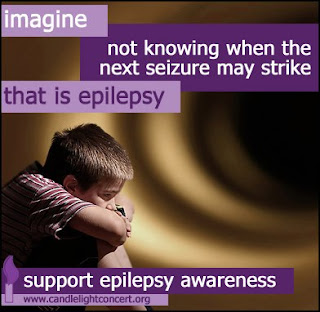Of all the big named disability centered organizations that I have tried to use to help my son, one stands out because I know the money is used in a way that gets down to the people who need it most.
I have something I complain a lot about behind closed doors (and sometimes in front of open ones) because it is just so wrong. I don't understand how the big named "charity" groups can take so much money from people who give to them in someone's name yet not give back in a noticeable, real way to the people who it is intended to help.
The Epilepsy Foundation of Michigan is a group I have worked with for about a year. I have personally seen their work reach the everyday people. They help people understand, treat, and educate about epilepsy. Their programs help people deal with the world as a whole - from doctors to educators. The conference they hold each year, and camps for the kids are invaluable to those who attend.
There is a community or family feel about the local group. I know several of the folks by name thanks to the way they reach out. Russ is one of those hard working people. I was able to meet him face to face and watch him work at last year's conference. It was hectic in the same fashion as all such things are, but he took time to talk to people, and note their concerns or thoughts. Russ is just one example of the good folks that make it all work out.
One of the most helpful programs I have used is the Learn & Share Conference Calls. You sign up, call in at the time and date, and you get chance to learn about variety of topics from adaptive technologies to medications to surgery. It is free, educational, and it gets down to us everyday people.
They offer many helpful programs so make sure you check out their site for yourself. Here is their Facebook page as well. The head organization is one I don't know as well but I recommend you check them out as well because there is a lot of good information available on all these sites.
Now, to support them and to raise awareness, my family and friends are supporting their biggest fundraising event in our local area. On June 8, 2013, we will be taking part of the Summer Stroll For Epilepsy at the Detroit Zoo. If you would like to help, you can find our team, "Walking With Rowan" here, and the main page for further information here. We could really use your help. If you can't sponsor one of our walkers, maybe you can share the information or ask your very nice employer to sponsor us. We would be forever grateful.
(or you can simply click the donation button on the blog and tell me what it is for and will put it in to the donation page on the site myself)
Go Team Walking With Rowan!!!

